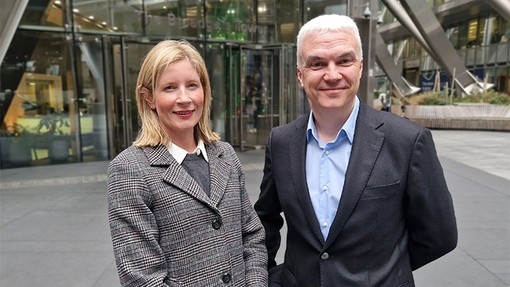High Court decision highlights the importance of keeping clients updated in respect of costs

High Court decision highlights the importance of keeping clients updated in respect of costs
Earlier this year, the High Court heard a professional negligence claim against law firm Reynolds Porter Chamberlain LLP (RPC) brought by one of its former clients, Ms Forster. The case was Forster -v- Reynolds Porter Chamberlain LLP [2023] EWHC 1150 (Ch).
Background
Ms Forster instructed RPC to act for her in a fraudulent misrepresentation claim brought by two investors of a company that she founded, namely Stayput Solutions Limited. The claimants in those proceedings were Ms Kate Bleasdale and Mr John Carriss (Opponents). Ms Forster also brought an unfair prejudice petition against the Opponents.
The proceedings against the Opponents ultimately settled on the second day of trial, on 31 March 2011, pursuant to the terms of a Tomlin order. The schedule to the Tomlin order provided that Ms Forster was to receive £350,000 compensation and 80% of her costs of the claim and the petition. RPC delayed in enforcing the settlement agreement, meaning only £50,000 of this was paid by the Opponents, who were eventually made bankrupt on Ms Forster’s petition in 2016. Nothing more was recovered from them.
Ms Forster subsequently brought the present claim against RPC, essentially seeking damages for loss of the opportunity to enforce the Tomlin order in October 2011 and thereby to recover more of the agreed sums, by first converting the Tomlin agreed terms into a judgment debt and then promptly enforcing it and the costs order against the Opponents’ assets in late 2011 and 2012.
At all times, RPC acted for Ms Forster under a conditional fee agreement (CFA) with a 100% mark up on their fees (this was a time prior to the Jackson LASPO reforms, when paying parties could be made liable for receiving party’s success fee of up to 100%). Ms Forster’s three counsel also worked on this CFA. Under the terms of the CFAs, all sums recovered from the Opponents were payable to RPC and counsel in priority to Ms Forster. Ms Forster had the benefit of an ‘after the event’ insurance policy (ATE Policy) providing insurance against limited adverse costs and any non-lawyer disbursements payable by RPC. This also covered repayment of a loan taken out by Ms Forster at a late stage of the proceedings to fund the fees of her expert witness (Loan Agreement), which was entered into with Giltspur Capital LLP (with whom RPC regularly engaged). This connection was not mentioned to Ms Forster at the time.
It was Ms Forster’s case that RPC had become conflicted in continuing to act for her given their interest in the Loan Agreement, and that they had preferred their own interests to hers in delaying enforcement action. One of the issues before the court was RPC’s breach of duty, specifically whether RPC had failed to:
- inform her of the exceptionally high level of ongoing costs and the commensurate risk of a shortfall in costs recovery;
- advise her adequately on the benefits and disadvantages of using a ‘Big Four’ partner as her expert witness;
- advise her adequately and fairly on the benefits and disadvantages of the Loan Agreement; and
- enforce the terms of the schedule to the Tomlin order in accordance with her instructions.
Decision
In response to Ms Forster’s claims of breach of duty, the Court concluded that RPC had not adequately advised Ms Forster in relation to the Loan Agreement, and that in failing to enforce the terms of the settlement agreement, it had subordinated its own client’s interests.
Mr Justice Fancourt also held that there was ‘no doubt […] that RPC failed adequately to keep Ms Forster informed of the level of fees that they were incurring in acting for her’. Mr Justice Fancourt further observed that there was Ms Forster ‘only discovered the amount of costs incurred by July 2010 as a result of reading the ATE insurance proposal in August 2010 […] She only learned of the costs incurred up to December 2010 at the mediation. By that stage they were almost £2.5 million. Thereafter, Ms Forster was at no time informed of the increase of costs up to and including the trial, which resulted in a bill of costs in excess of £5.3 million being filed’.
RPC’s justification for not keeping Ms Forster informed in respect of costs was that costs were of no concern to Ms Forster given she had entered into a CFA. The court considered this to be irrelevant; this ‘importantly overlooked the risk to Ms Forster of the shortfall between the chargeable fees and disbursements and the costs recovered from the Opponents eating into any compensation that she was awarded’.
Whilst it was established that there was a breach of duty, it had caused no loss. However, it was held that Ms Forster had suffered a loss of chance regarding enforcement of the settlement due to a conflict between the solicitors and funders who had made a loan to Ms Forster, and judgment was awarded in her favour for £192,500.
Comment
The case serves as a good reminder of the importance of clients being kept updated in respect of costs. Transparency and honest communication regarding costs remains of paramount importance; failure to act properly in this regard will invariably open solicitors up to claims in negligence. It also reinforces the duty on solicitors to ensure that they do not end up in a similar situation to RPC, who became “hopelessly conflicted”, in preferring its own interests to its client’s.
For further advice on professional negligence issues, please contact Jack Lewis.





